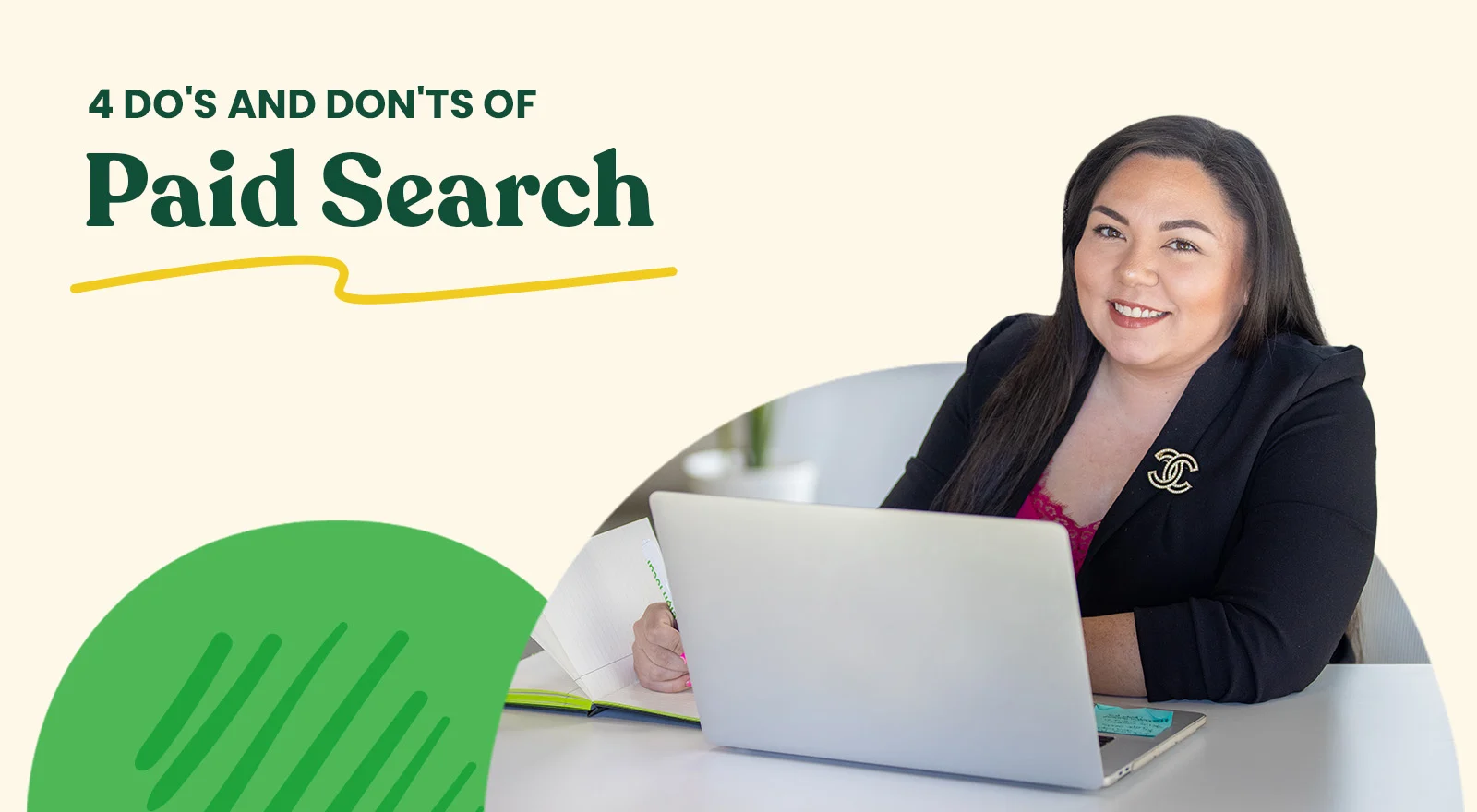No matter the size of your insurance agency, mastering paid search can dramatically boost your digital presence and bring in fresh, quality leads.
In fact, 45 percent of page clicks go to pay-per-click (PPC) ads in search results and visitors are 50 percent more likely to convert through paid search than those who come through organically.
Paid search requires investing more than dollars — it takes strategy and time. But with the right approach, you can make every dollar work hard for you.
At Melon Local, we believe these four do’s and don’ts are essential for successful paid search campaigns. Let’s explore them to ensure your campaigns are as effective as possible!
The Do’s of Paid Search Optimization
Do Research Your Keywords Thoroughly
Keyword research is the foundation of your paid search campaign, and the words you choose can either make or break your wallet. Using tools like Ahrefs or SEMrush is a great way to find keywords that your target audience is searching for. Prioritize keywords that are relevant to your services and have a good balance of search volume and competition.
Do Write Engaging Ad Copy
You may have the right keywords, but how about the right message? Your ad copy is your chance to make a great first impression. Whether you’re advertising auto insurance or life insurance, be clear, concise and compelling. Highlight what makes your insurance services unique and always include a strong call to action. Make sure your ad speaks directly to the needs and pain points of your local market.
Do Leverage Audience Targeting
Audience targeting allows you to reach potential clients who are most likely to be interested in your insurance services. Use tools like Google Ads’ audience segments to target specific demographics, interests and behaviors. By tailoring your ads to reach the right people, you can increase their relevance and improve your conversion rates. Taking this approach ensures that your budget is spent efficiently by focusing on the most promising prospects.
Do Monitor and Adjust Regularly
The world of paid search never sleeps. Regularly review your campaign performance, analyze the data and make adjustments as needed. Use A/B testing to experiment with different ad variations and continually refine your approach to maximize results.
The Don’ts of Paid Search Optimization
Don’t Ignore Negative Keywords
Bidding on negative keywords is essential for filtering out irrelevant traffic that can ultimately waste clicks and money. They ensure your ads don’t show up for searches that aren’t related to your services, saving you money on wasted clicks. Regularly update your negative keyword list to keep your campaigns focused and efficient.
Don’t Set and Forget Your Bids
Regular oversight of your bids is essential to ensure you’re not overspending or underspending. Always check in on your ads and adjust your bids as needed based on performance data to get the best return on investment. Regularly optimizing bids can improve campaign performance by up to 25 percent.
Don’t Overlook Google’s Quality Score
Google’s Quality Score measures the relevance of your ads, keywords and landing pages. A higher Quality Score can lower your costs and improve your ad position. Make sure your keywords are tightly aligned with your ad copy and landing page content to level up your Quality Score.
Don’t Rely Solely on Paid Search
While paid search is a powerful tool, it’s important to integrate it with other marketing strategies, such as organic search. A well-rounded approach helps provide a steady flow of traffic and leads, no matter what changes might happen in one particular channel.
Remember, achieving success in paid search requires precision and continuous optimization. At Melon Local, we tailor high-performing campaigns to meet your specific needs. Schedule a demo today to see how we can help you drive quality leads and achieve your marketing goals.

